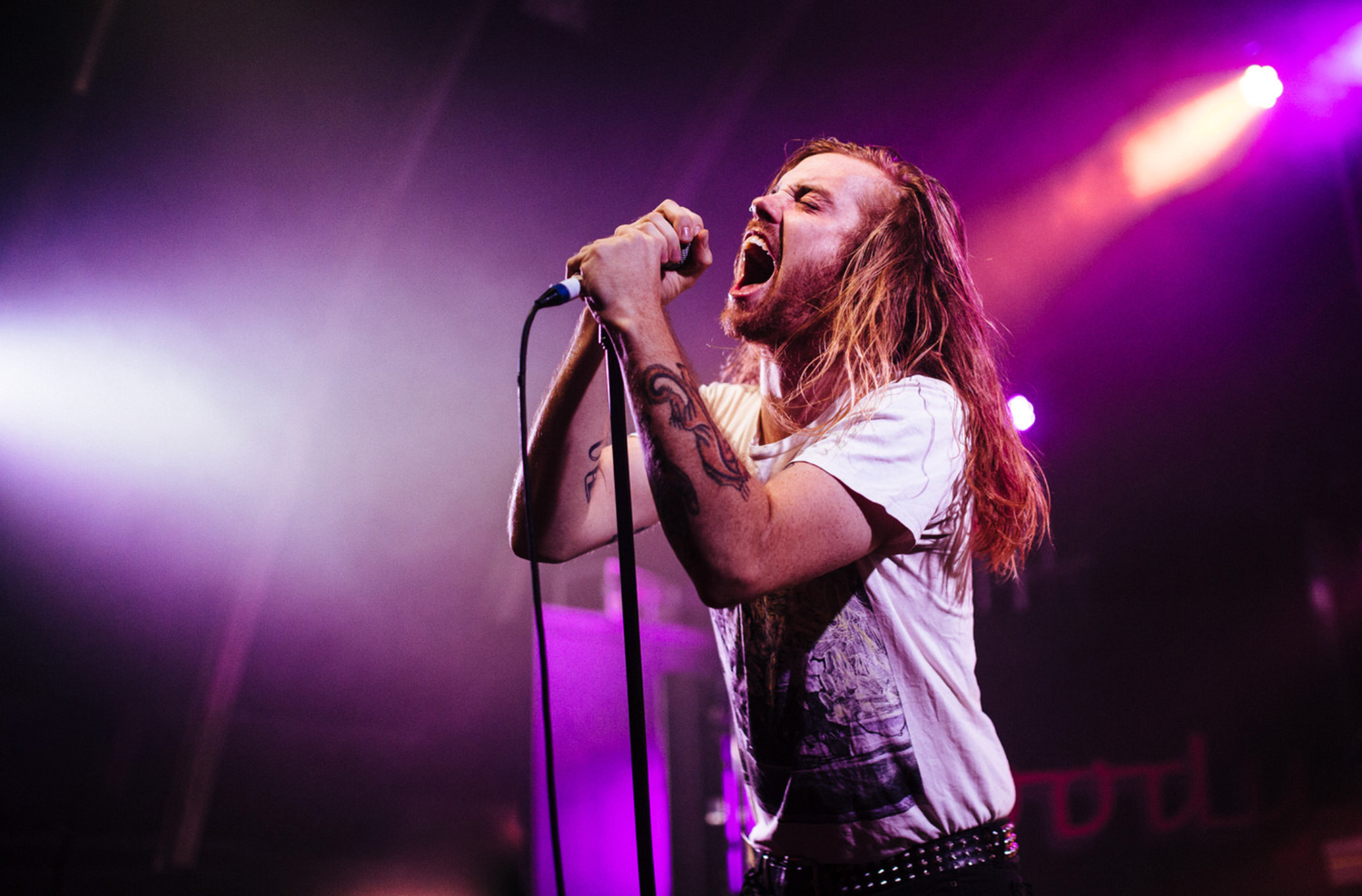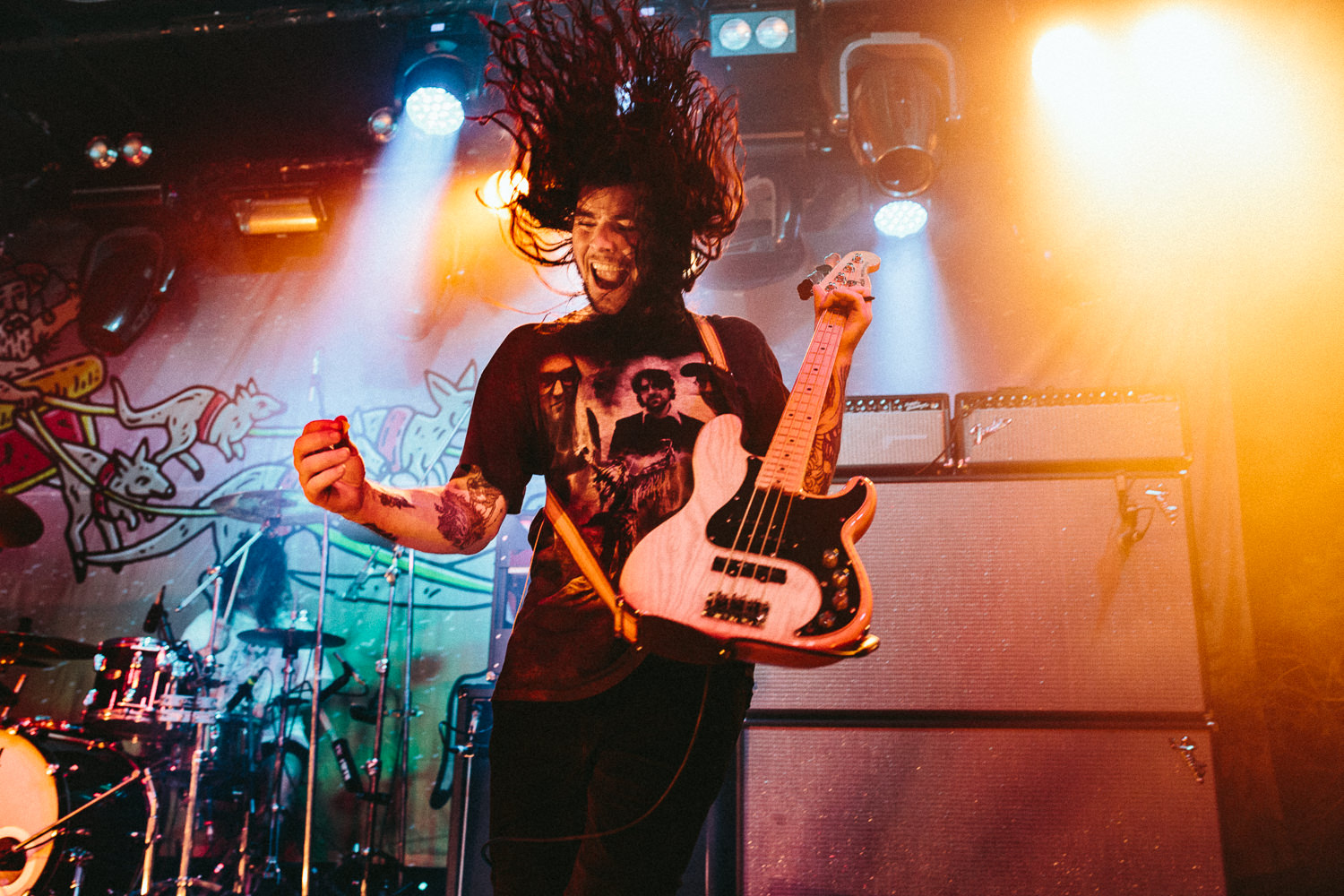Best concert photography lens
Concert photography doesn’t get easier if you have certain lenses, but it can open up new opportunities for creativity.
Matthew James Oxlade
Even if you don’t feel that you are particularly creative or innovative with live music photography, you can get very different results when you have certain lenses for concert photography. But which are the best concert photography lenses?
Keeping in mind that I shoot with Canon gear, whether you shoot Nikon, Canon, Fuji or something entirely different, there’s always a new lens out there that would add that little creative edge that you can’t achieve with your current equipment. The lenses below are all compatible with Canon EF mounts unless I state otherwise. I don’t recommend EF-S lenses because they don’t fit all Canon bodies like EF lenses do. EF-S lenses fit on EF-S mounts only, whereas both EF and EF-S lenses fit on all Canon cameras. For that reason, you can’t grow with them because a lot of the high-end camera bodies only fit EF lenses.
There’s a tongue-in-cheek term photographers often use called G.A.S. or ‘Gear Acquisition Syndrome’. Even if you bought all of the lenses mentioned in this article, you’ll still find more to buy. I guarantee it! It’s not cheap being a photographer, but hey, isn’t new equipment always exciting? Even if you get the very best concert photography lens, you’ll want more. Then more. And more!
Everyone knows that having the best concert photography lens and camera body isn’t everything, and technique is the key to shooting concerts and coming away with great concert photos. Gear is just one piece of the puzzle, and post processing is another important piece. Between those two pillars is technique and skill. Dealing with bright lights is a challenge no matter how long you’ve studied photography for.

Inexpensive best concert photography lenses
These lenses are perfect for beginners or photographers on a budget that are keen to get started on live music photography. There’s nothing to be ashamed about if you own or can only afford one of these lenses. All of the lenses below, in my opinion, are worth more than their asking price.
Canon 50mm f/1.8
Both Canon and Nikon make fantastic 50mm lenses that have very wide apertures. It’s common opinion that 50mm is as close to the same view your eye naturally has when fitted to a full-frame camera, but I personally think 35mm is more accurate on a full-frame camera.
Regardless, don’t mistake these plastic-bodied lenses for anything other than worthy of its place in your camera bag. These lenses are easily the most common lens for beginner concert photographers who need to shoot in low light situations. In my opinion, this lens is far underpriced for what it delivers and is one of the best concert photography lenses at this price point.
Canon 50mm f/1.4
This lens is great if you find the Canon 50mm f/1.8 lens doesn’t open wide enough to capture enough light. If you feel that f/1.8 isn’t enough, I would suggest checking your technique – but if you are still chasing a wider aperture, this lens is a good, cheap lens that will get the job done.
Sigma 12mm f/2.8 Fisheye
Any super-wide lens that allows you to capture a massive audience is useful, but generally wide-angle lenses that also have wide apertures are expensive. One of the less expensive wide-angled lenses that open wide is the Sigma 12mm fisheye.
The low price tag comes at a cost – it over exposes the image. Since you’ll be shooting in RAW, once you reduce the exposure while editing, the lost details will come right back. It’s an annoying setback for the lens, but once you become familiar with how much it overexposes as you shoot, you can easily forgive it given the price.
Canon 28mm f/1.8
This is a nice, wider alternative to the Canon 50mm f/1.8. If you’re on a crop sensor, this leaves the focal length at around 35mm, which is still wide enough for most stages. This lens is great for small venues when you’re really close to the musicians or want to get a really nice, wide shot showing off the size of the crowd.
The only downside to this lens is that at 28mm, a lot of unwanted items compete with the subject. This might be microphone stands, other musicians or something different that isn’t intended to be in the shot. It’s not necessarily a bad thing, and you might want those things within the shot. But if you don’t, keep in mind that there may be a lot of cloning you’d need to do to clean up the image.

Medium to high-end lenses that are perfect for concert photography
Canon 24-70mm f/2.8L II
This lens is so sharp and fast at focusing. Most prime lenses are either at 24mm or 50mm, so with this lens, you get choices as well as a little bit extra on top of that 50mm. It’s also weather-sealed, so the sweatiest rooms and wildest shows won’t affect the lens with any beer spillages. With this lens I was able to take this photo of Violent Soho celebrating after their last show on the WACO Tour.
Canon 16-35mm f/2.8L IS
This lens also comes in a f/4L variety, but if you can afford to get the f/2.8 version mentioned here, you’ll be making a wise investment by increasing the flexibility to get the shot you want. This lens goes even wider than the Canon 28mm f/1.8 but the aperture doesn’t open as wide. Still, f/2.8 is pretty wide so you will be able to make the most of the light. It also has image stabilisation, which can come in handy with concert photography.
Sigma 35mm and 50mm f/1.4 Art DG HSM lenses
Sigma has improved their lenses immensely over the years, and with their Art Series of lens, they’ve rivalled Canon’s highest quality lenses at a fraction of the price. While it’s a fantastic lens at a cheaper price, keep in mind that these are not weather sealed. So if you’re shooting in the rain, or with a crowd that likes to throw drinks around, you’ll want to protect these lenses in the music environment.
Lenses that seem great, but aren’t worth it
For each great value lens out there, there’s an overpriced lens. Think of it like a sports player – they might have fantastic attack stats, but don’t perform well defensively. The same applies to photography equipment. Some lenses sound like a music photographer’s dream, but for one reason or another, don’t perform well. Here’s the lenses that don’t perform well with live music photography and why.
Canon 50mm f/1.2L
I shot a lot of my early music photography work with this lens. I bought it because it had one of the widest aperture openings of all the lenses around at the time. The problem with the lens is that I found 50mm to be too close to the subject, and ultimately felt restrictive to me. That’s a personal opinion, but the next two points were unfortunately fact.
The bigger problem with it is that it was one of the slowest focusing lenses, which was a horrible ‘feature’ of the lens. The other reason why the lens wasn’t ideal was that at f/1.2 to f/2.8 it was extremely soft. Sometimes it even looked out of focus! So it’s definitely not the best concert photography lens out there in my opinion.
Canon 35mm f/1.4L
This lens suffers from the same problems as above. It is a really slow-to-focus lens, and while not as soft around the edges at wider apertures compared to the above, it still is much softer than the cheaper alternatives mentioned in this article. So it’s also not my favourite or a lens I feel is one of the best concert photography lenses out there.
You can find out what lenses I use for my concert photography in the Music Photography Guide I’ve written to help beginner music photographers become successful. It has everything I did when I started shooting bands. You will learn how to master shutter speed, camera settings and ISO settings, along with a whole lot more. I packed in everything I knew about shooting live music photography.